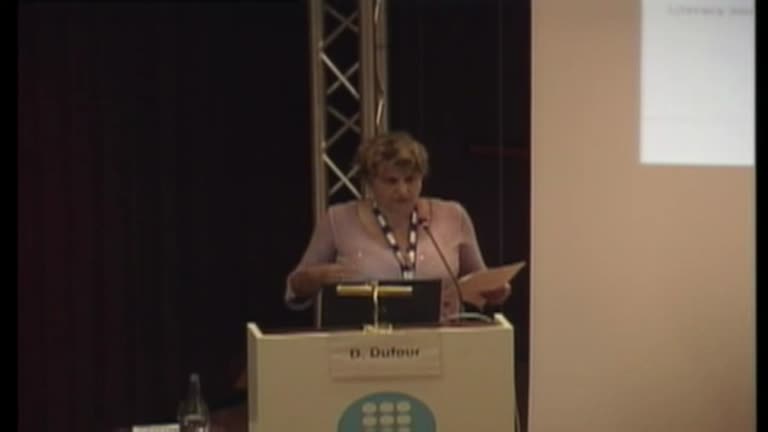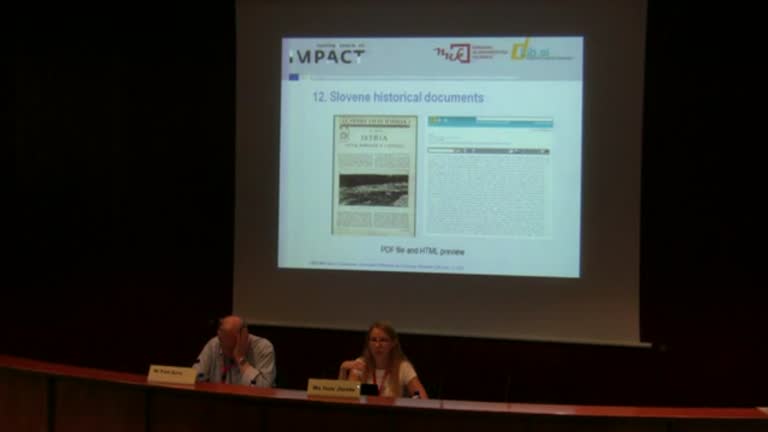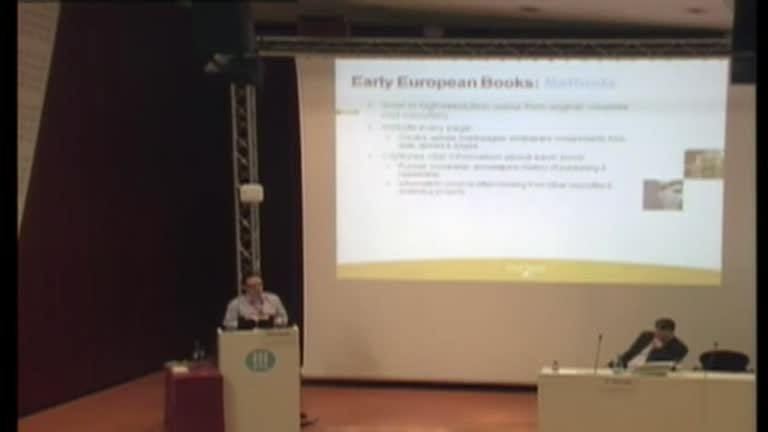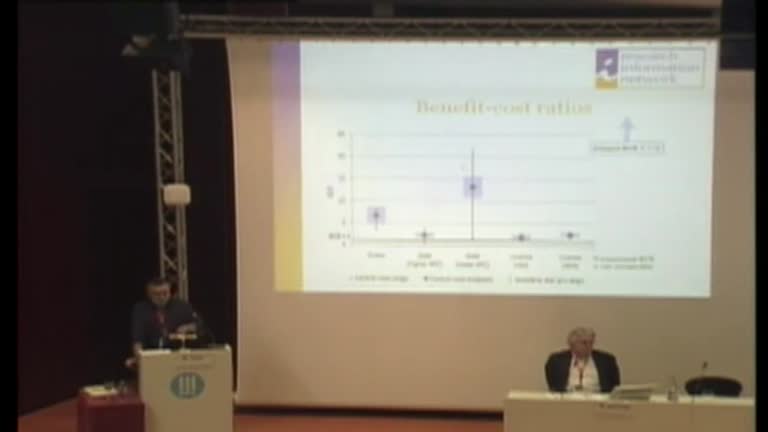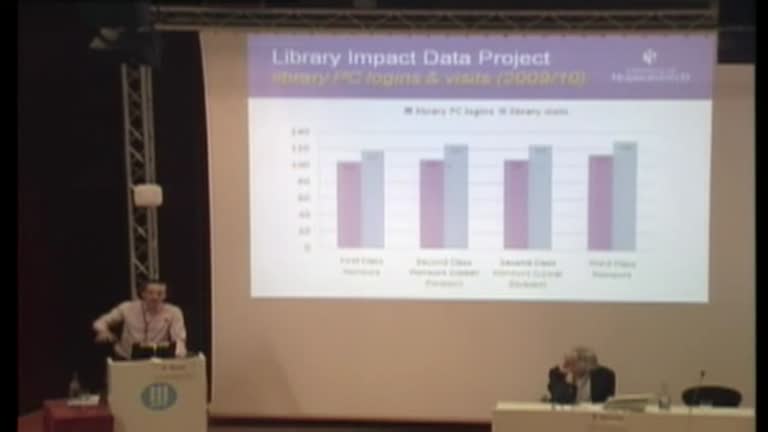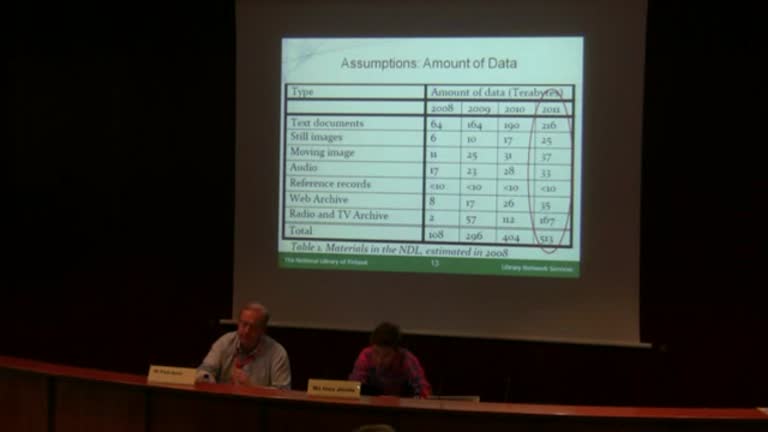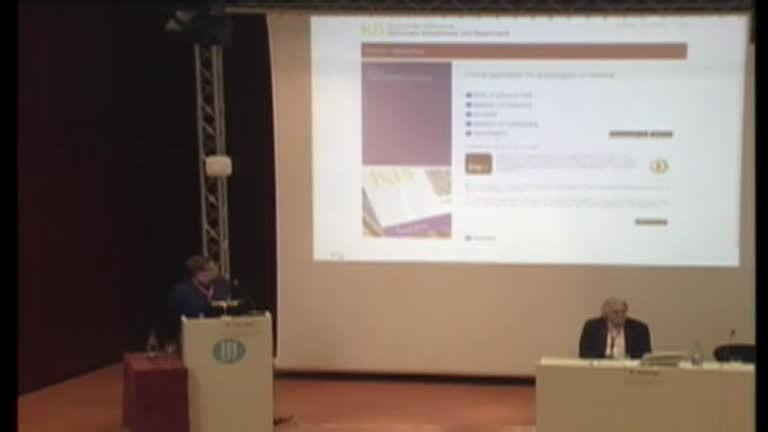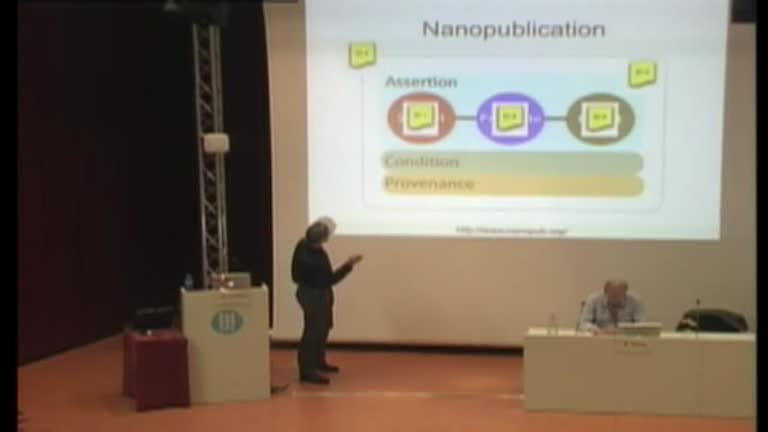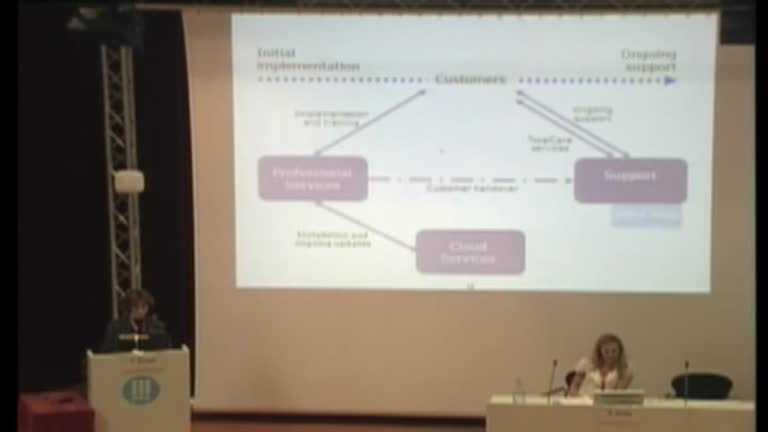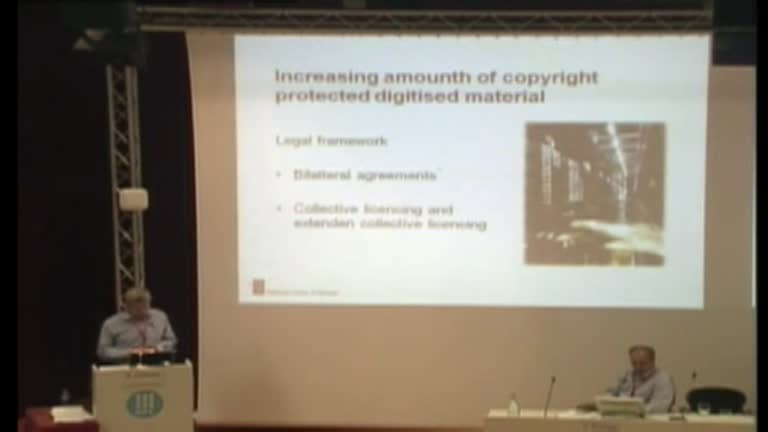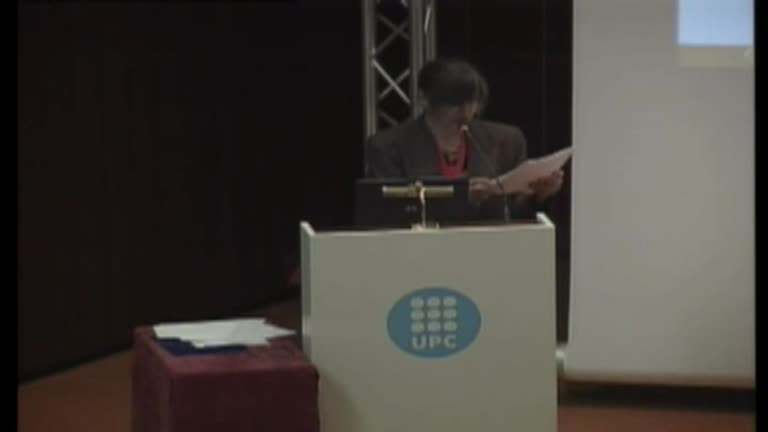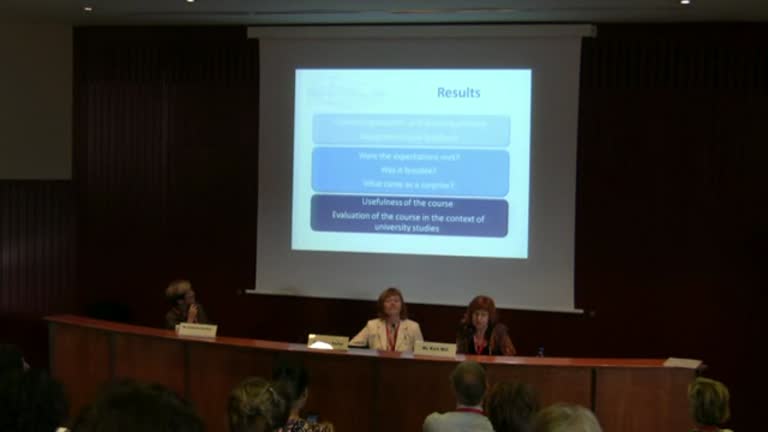Objectes multimèdia amb l’etiqueta: Recursos generals
Resultats de la cerca
Social Media in European Libraries
Accés obert
1 de jul. 2011
EBSCO Information Services is the leading service provider of e-journal, e-book and e-journal package and print subscriptions, e-resource management tools, full-text and secondary databases, and related services for all types of libraries, research organisations and corporations.
Role of National and University Library of Slovenia in a multinational research project (IMPACT): a case study
Accés obert
1 de jul. 2011
In this paper, the participation and the role of individual libraries as partners in a consortium research project on digitization issues are analyzed, following the example of the National and University Library of Slovenia (NUK) as a partner in the ongoing project IMPACT - Improving Access to Text. IMPACT is funded under the Seventh Framework Programme of the European Commission (FP7) aimed at improving automated text recognition of digitized materials from different European digital collections. For achieving the project’s objectives, a consortium of partners from different European libraries, information technology and software engineering centres and linguistic institutes was established. The consortium’s work is based on interdisciplinary collaboration in which libraries (like NUK) play an important role as demonstrators of tools developed within the project, and representatives of end-users needs and demands as well.
ProQuest’s Early European books
Accés obert
1 de jul. 2011
We will provide a progress report on ProQuest’s ambitious Early European Books project, which aims to build a comprehensive library of European printed books from the first examples in the 1450s through to the year 1700. In doing so, the project represents an innovative model for opening up access to the printed heritage stored in Europe’s rare book libraries. The presentation will provide an outline of ProQuest’s publishing model, digitisation practices and specialist interface, and will also show some samples of the books we have already digitised at the Kongelige Bibliotek, Copenhagen, the Biblioteca Nazionale Centrale di Firenze and the Koninklijke Bibliotheek in The Hague. In addition, we will talk about the economic and intellectual challenges of creating cataloguing and other metadata to accompany the digital files.
Heading for the open road: costs and benefits of transitions in scholarly communications
Accés obert
1 de jul. 2011
All the key players in scholarly communications – funders, universities, libraries, publishers, and researchers – have an interest in improving access to scholarly journals. But the different constituencies do not share a common view of how this might best be achieved. Much attention has focused on open access and the benefits it could bring if adopted globally. But little attention has been paid to the dynamics of transition towards substantial improvements in access.
Does library use affect student attainment? A preliminary report on the library impact data project
Accés obert
1 de jul. 2011
The current economic climate is placing pressure on UK Universities to maximise use of their resources and ensure value for money. In parallel, there is a continuing focus on the student experience and a desire that all students should achieve their full potential whilst studying at University.
Costs and benefits of a shared digital long-term preservation system
Accés obert
1 de jul. 2011
This paper is a report on the cost-benefit analysis of digital long-term preservation that was conducted as a part of the National Digital Library Project in 2010.
The analysis was based on the assumption that a large number, perhaps as many as 200, of archives, libraries, and museums will share a preservation system. The term ”system” shall be understood as encompassing not only information technology, but also people, organizational structures, policies and funding mechanisms.
The cost analysis shows that a preservation system will incur, over 12 first years, cumulative costs of 42 million euros. If a dark archive will be built, the costs will increase by 3.4 million euros. Human resources and investments on information technology are the major cost factors. After the initial stages, the analysis predicts annual costs of circa 4 million euros.
The analysis was based on the assumption that a large number, perhaps as many as 200, of archives, libraries, and museums will share a preservation system. The term ”system” shall be understood as encompassing not only information technology, but also people, organizational structures, policies and funding mechanisms.
The cost analysis shows that a preservation system will incur, over 12 first years, cumulative costs of 42 million euros. If a dark archive will be built, the costs will increase by 3.4 million euros. Human resources and investments on information technology are the major cost factors. After the initial stages, the analysis predicts annual costs of circa 4 million euros.
An integral approach to digital information delivery in The Netherlands
Accés obert
1 de jul. 2011
The Koninklijke Bibliotheek (KB)’s mission is to connect people and information. One of its core responsibilities is to deliver digital scientific information to end-users, focusing on on-line access and services.
A significant number of documents, however, is only available to specific user groups (e.g. library members, students or researchers), or only remotely accessible by paying a fee.
This paper will discuss an approach to delivering information that focuses on creating on-line access to relevant scientific information to remote end-users. This integral vision is currently realized in two pilot projects, in cooperation with Dutch public libraries, research institutes and publishers.
A significant number of documents, however, is only available to specific user groups (e.g. library members, students or researchers), or only remotely accessible by paying a fee.
This paper will discuss an approach to delivering information that focuses on creating on-line access to relevant scientific information to remote end-users. This integral vision is currently realized in two pilot projects, in cooperation with Dutch public libraries, research institutes and publishers.
Towards machine-actionable scholarly communication
Accés obert
30 de juny 2011
Ever since their emergence, both the products of scholarly communication and the supporting services have mainly targeted human users. Gradually, however, products are emerging that are more friendly for use by machines, or are even solely designed for them. The emergence of a machine-actionable layer of scholarly communication happens at different levels, and touches upon primary research results, research data, and the research process itself.
The presentation will provide an insight in this ongoing evolution, and will provide concrete illustrations of this trend. It will also zoom in on research data as a new first class objects in digital scholarly communication, some of the challenges related to fully integrating this newcomer, and opportunities and challenges for libraries with this regard.
The presentation will provide an insight in this ongoing evolution, and will provide concrete illustrations of this trend. It will also zoom in on research data as a new first class objects in digital scholarly communication, some of the challenges related to fully integrating this newcomer, and opportunities and challenges for libraries with this regard.
The transition to cloud-based library services - a vendor’s perspective
Accés obert
30 de juny 2011
Recent global changes, such as technological advances, evolving needs of students and researchers, and extensive budget cuts, are driving libraries to explore new operating models and to consider the benefits of hosted services of various kinds. As a vendor of library software for two and a half decades, Ex Libris has been anticipating the changes and building an infrastructure to support new, hosted modes of operation.
New business models and legal framework for dissemination of digital content
Accés obert
30 de juny 2011
The Norwegian National Library made a decision in 2005 to digitize all of it´s collection. Being a multimedia legal deposit institution the decision implies digitizing printed material, manuscripts, music, film, photos, radio broadcasts and television. A long term schedule for the total operation was presented to the owner, The Ministry of Culture in 2006.
Managing research information for researchers and universities
Accés obert
30 de juny 2011
Recent research on scholarly behavior converges on conclusions about ecologies of information-related services in universities and across academic disciplines. In the past few years, numerous credible studies - conducted in Europe and North America - have offered evidence about information needs of a variety of researchers and their universities. While we have witnessed simultaneous evolution of discipline-based hubs and institution-based repositories, diverse international reports have identified gaps in digital infrastructure and library provision of services to manage research information.
How to teach information literacy relevant to students: an online credit course model from the University of Tartu Library
Accés obert
30 de juny 2011
To communicate the necessity of information literacy in the university and to draw attention to it as a possible subject, we created in 2006 a web-based general course model of information literacy. The course is based on the ALA standards and is now included in the university curriculum as a credit bearing optional elective course, giving 3 ECTS credit points. We relied on experiences described in professional literature: information literacy can be effectively taught in separate courses, and such courses should be offered by libraries as well. On the basis of the course, we have also created an advanced course for doctoral students, several specialized courses in information literacy integrated into subjects, and a nationwide course for gymnasium students.


